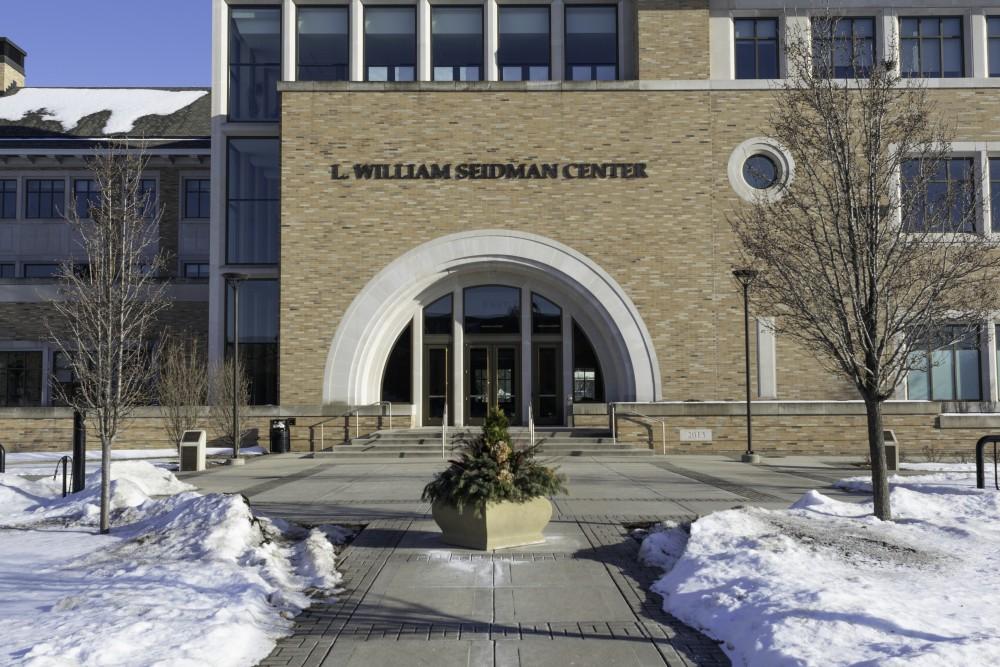Pew Campus tests air quality following Viant Medical pollution report

Viant Medical, located just southwest of Grand Valley’s Pew campus, continues to exceed limits for ethylene oxide emissions. GVL / Andrew Nyhof
Feb 18, 2019
In response to increased ethylene oxide emissions from Viant Medical Inc. near Grand Valley State University’s Pew Campus, university officials hired a private company to complete air quality testing inside four Pew Campus buildings: the Seidman College of Business, the Bicycle Factory, DeVos Center and Winter Hall.
Viant Medical Inc. routinely uses ethylene oxide as a means of sterilizing medical devices. Beginning in summer 2018, the Michigan Department of Environmental Quality (MDEQ) cited the company with multiple violations for failing to properly contain ethylene oxide emissions. During a return inspection by MDEQ in fall 2018, Viant’s emissions were found to exceed the Environmental Protection Agency’s acceptable limit by 150 times, according to a report published by MLive News.
Exposure to ethylene oxide has been linked to numerous health problems, including respiratory problems, dizziness and nausea. In addition, the Occupational Health and Safety Administration of the U.S. Department of Labor has linked the gas to instances of cancer, including leukemia.
However, Air Quality Division Supervisor of MDEQ Robert Sills said that he does not believe there is cause for alarm at the current level of emissions.
GVSU officials have been in contact with MDEQ regarding the situation. The decision to go forward with indoor air testing was made after a Feb. 6 meeting between the two parties.
Associate Vice President of University Communications Mary Eileen Lyon said that the decision was made to gather information and ensure a safe quality of air on the Pew Campus.
“We do believe the quality of our air is good, but we want to assure the campus community with facts,” Lyon said.
The air quality testing on the Pew Campus was carried out by the independent company Fishbeck, Thompson, Carr & Huber, Inc. this past weekend, with results to be released in the coming weeks. According to Lyon, it cost GVSU approximately $6,000, which will be taken out of the facilities budget.
On Thursday, Feb. 7, GVSU staff and faculty received notice of the air quality testing from an email sent out by Provost and Executive Vice President for Academic and Student Affairs Maria Cimitile and Vice President for Administrative Services D. Scott Richardson. The message stated that “experts do not believe (ethylene oxide emissions) will be detected in our buildings, but the tests will provide us with the facts.”
In addition to the inside air testing, MDEQ is also conducting more studies of the outside air in the vicinity. They have organized a community meeting set for Wednesday, March 6 in the Eberhard Center to discuss their findings and address residents’ questions and concerns with a subsequent meeting to be scheduled at a later date.






















